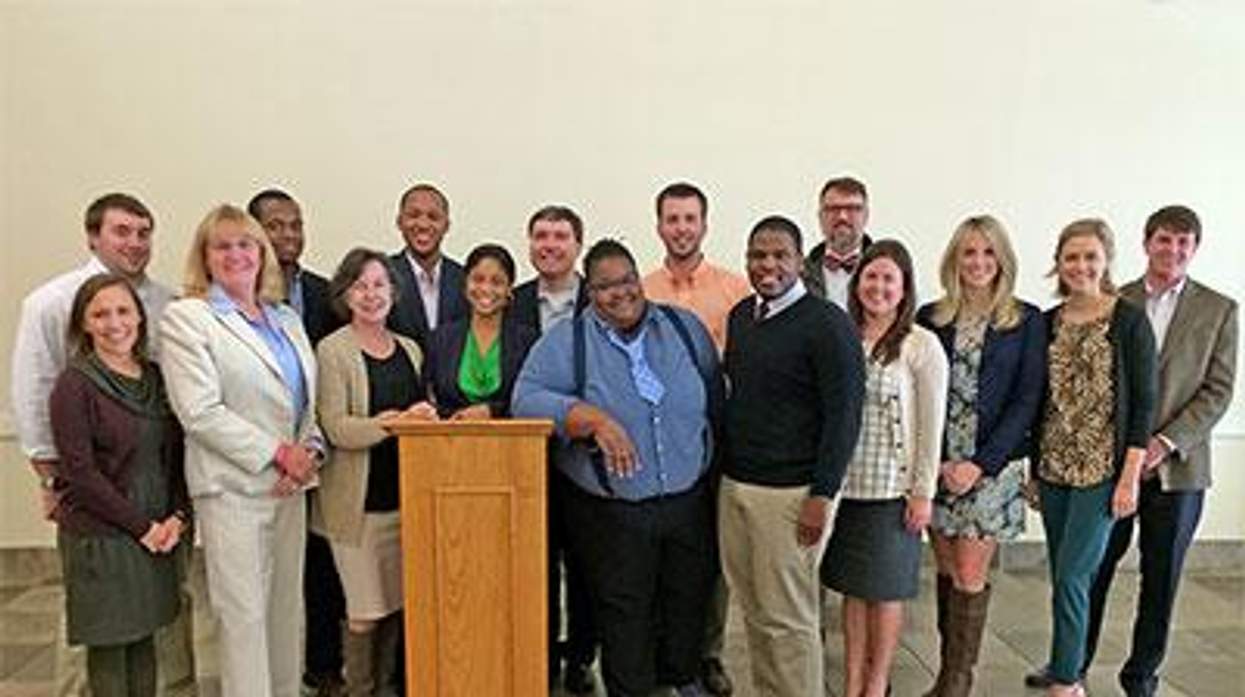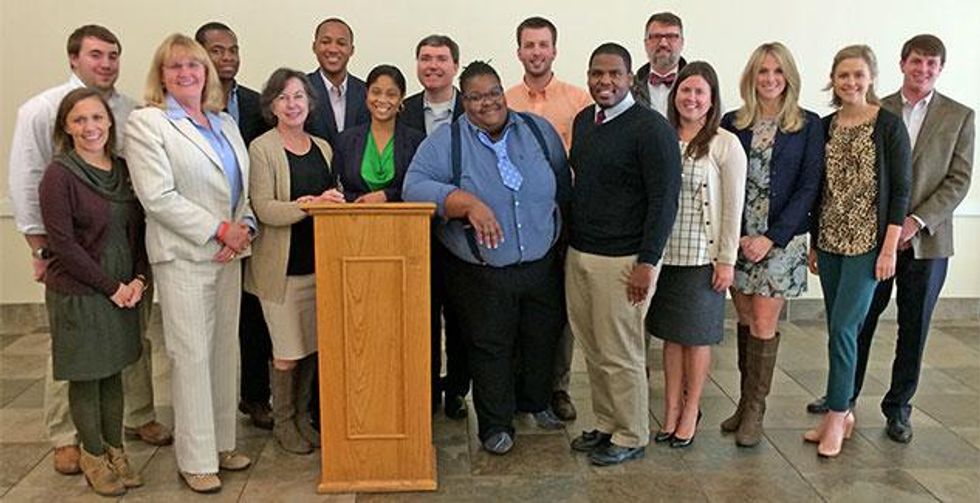 Family Equality Council has always had, at its core, a mission to serve LGBTQ-headed families. That mission has manifested itself in a variety of ways. Sometimes it's about connecting families to one another; sometimes it's about bringing families together in community so that both the parents and their children can see themselves in other families; sometimes it is about empowering families to use their voices in their own advocacy for justice and equality. For the last several years, our service to LGBTQ-headed families has also been about advocating for laws that treat our families fairly and on the same bases that the law treats families headed by different-sex parents. Late last month we added a new dimension to our work.
Family Equality Council has always had, at its core, a mission to serve LGBTQ-headed families. That mission has manifested itself in a variety of ways. Sometimes it's about connecting families to one another; sometimes it's about bringing families together in community so that both the parents and their children can see themselves in other families; sometimes it is about empowering families to use their voices in their own advocacy for justice and equality. For the last several years, our service to LGBTQ-headed families has also been about advocating for laws that treat our families fairly and on the same bases that the law treats families headed by different-sex parents. Late last month we added a new dimension to our work.
Before I explain it, let me first lay the foundation with some important background information. In October 2011, when Family Equality Council, together with our partners at the Centers for American Progress and the Movement Advancement Project published our groundbreaking All Children Matter report, we highlighted some key findings:
* The top 12 states that had more than one in four same-sex couples raising children were also states that offered the least legal and lived equality for our families. Mississippi topped the list with 27 percent of same-sex couples raising children.
* Our families are more than twice as likely to live in poverty than a family headed by married different-sex couples (20 percent versus 9 percent).
* Black and Latino/a same-sex couples are twice as likely as white same-sex couples to be raising children.
We also understood from other studies that several states in the Deep South hold the dubious distinction of leading the nation in poverty. In Mississippi, we know that one in four children live in poverty.
Looking at this collectively we know that there are significant populations of same-sex couples raising children who are also living in poverty and often at the intersection of oppressions (class, race, sexual orientation, etc.).
So we began a "listening tour" to better understand the lived realities of these families. For the past two years, we've been on the ground in states in the Deep South, paying attention to what our families and other Mississippi-based LGBTQ rights activists had to say. We understood that passing family-friendly legislation was going to take time. And despite the amazing victories that the nation was seeing around marriage equality for same-sex couples, we knew that it could be some time before marriage equality came to these states, and even when it did, it would not end the daily struggles that these families faced.
In conversations with the University of Mississippi School of Law and its student-led Outlaw group, we conceived the idea of creating a legal clinic where we would provide LGBTQ families, living at or below 200 percent of the federal poverty guidelines, free legal services focused on creating basic family planning documents, documents that same-sex couples' families would normally have to hire an attorney to prepare. We knew these families had more pressing priorities.
Over the past year, we have been working steadily to produce such a clinic and decided to hold our "pilot" in Jackson, Miss. We chose this location because, according to the most recent data, the greatest number of same-sex couples raising children in Mississippi live in Hinds County, where Jackson is located. We had no trouble in recruiting volunteer law students and licensed attorneys to supervise them; it seems fairness and helping one's neighbors are core values for these Mississippians.
It was important to us that these law students and the attorneys were well trained in both the substantive areas of the law and in cultural competency. So, again in lockstep with the University of Mississippi School of Law, we created a day-long training, available first by personal attendance and then later, online.
The documents we created for these families are likely well known to most Advocate readers. But, they are fundamental. We created wills, documents that help transfer assets (even assets as simple as a ring or photograph) to their loved ones upon death. We created powers of attorney for parental care, a document that gives a nonlegal parent certain powers that the legal parent has, such as making medical decisions, dropping off and picking up from school, etc. We created health care powers of attorney, and many other documents. And, in addition to actual document preparation, we provided a half-day seminar on the state of the law in Mississippi for LGBTQ-headed families and what other steps might be available for a couple raising children or wanting to raise children.
Preparing these documents and educating these families was enormously satisfying to those of us who put this together. A side benefit to conducting this clinic was also that we saw people -- LGBTQ-headed families -- light up at the idea that, even in Mississippi, there was something they could do, something real and tangible that could help families in their daily lives.
But the real benefit lies in the families served.
As one clinic participant wrote, "Same-sex families are no different from other families. Here in Mississippi there are many of us. ... Words cannot express my gratitude enough as now my family will have the legal documents needed to ensure we have some sort of legal protection. We realize that ultimately we need our laws to change but until then LGBTQ families will rest a bit easier as we will have some protections we did not have before."
DENISE BROGAN-KATOR is the senior legislative counsel at Family Equality Council, the national organization that connects, supports, and represents the 3 million parents who are lesbian, gay, bisexual, and transgender in this country and their 6 million children of all ages.


 Family Equality Council has always had, at its core, a mission to serve LGBTQ-headed families. That mission has manifested itself in a variety of ways. Sometimes it's about connecting families to one another; sometimes it's about bringing families together in community so that both the parents and their children can see themselves in other families; sometimes it is about empowering families to use their voices in their own advocacy for justice and equality. For the last several years, our service to LGBTQ-headed families has also been about advocating for laws that treat our families fairly and on the same bases that the law treats families headed by different-sex parents. Late last month we added a new dimension to our work.
Family Equality Council has always had, at its core, a mission to serve LGBTQ-headed families. That mission has manifested itself in a variety of ways. Sometimes it's about connecting families to one another; sometimes it's about bringing families together in community so that both the parents and their children can see themselves in other families; sometimes it is about empowering families to use their voices in their own advocacy for justice and equality. For the last several years, our service to LGBTQ-headed families has also been about advocating for laws that treat our families fairly and on the same bases that the law treats families headed by different-sex parents. Late last month we added a new dimension to our work.

































































Charlie Kirk DID say stoning gay people was the 'perfect law' — and these other heinous quotes